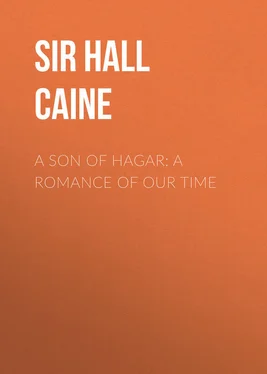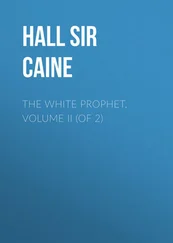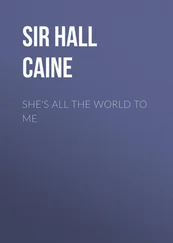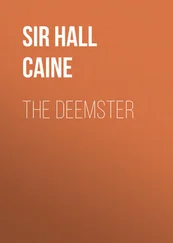Hall Caine - A Son of Hagar - A Romance of Our Time
Здесь есть возможность читать онлайн «Hall Caine - A Son of Hagar - A Romance of Our Time» — ознакомительный отрывок электронной книги совершенно бесплатно, а после прочтения отрывка купить полную версию. В некоторых случаях можно слушать аудио, скачать через торрент в формате fb2 и присутствует краткое содержание. Жанр: foreign_antique, foreign_prose, на английском языке. Описание произведения, (предисловие) а так же отзывы посетителей доступны на портале библиотеки ЛибКат.
- Название:A Son of Hagar: A Romance of Our Time
- Автор:
- Жанр:
- Год:неизвестен
- ISBN:нет данных
- Рейтинг книги:5 / 5. Голосов: 1
-
Избранное:Добавить в избранное
- Отзывы:
-
Ваша оценка:
- 100
- 1
- 2
- 3
- 4
- 5
A Son of Hagar: A Romance of Our Time: краткое содержание, описание и аннотация
Предлагаем к чтению аннотацию, описание, краткое содержание или предисловие (зависит от того, что написал сам автор книги «A Son of Hagar: A Romance of Our Time»). Если вы не нашли необходимую информацию о книге — напишите в комментариях, мы постараемся отыскать её.
A Son of Hagar: A Romance of Our Time — читать онлайн ознакомительный отрывок
Ниже представлен текст книги, разбитый по страницам. Система сохранения места последней прочитанной страницы, позволяет с удобством читать онлайн бесплатно книгу «A Son of Hagar: A Romance of Our Time», без необходимости каждый раз заново искать на чём Вы остановились. Поставьте закладку, и сможете в любой момент перейти на страницу, на которой закончили чтение.
Интервал:
Закладка:
A Son of Hagar: A Romance of Our Time
It must be an exceeding great reward, beyond all the rewards of material success, to know that you have written a book that is deep, tranquil, strong and pure. Again and again you have nobly earned that knowledge. Across the more than thirty years that divide us, the elder from the younger brother, the veteran from the raw comrade, let me offer my hand to you as to a master of our craft.
To the author, then, of a romance that has no equal save in Scott, I humbly dedicate this romance of mine.
H.C.barn=child; dusta=dost thou; hasta=hast thou.
laal=little; leet=alight; girt=great.
sista=seëst thou.
varra=very.
wadsta=wouldst thou.
wilta=wilt thou.
Shaf!= an expression of contempt .
PREFACE
In my first novel, "The Shadow of a Crime," I tried to penetrate into the soul of a brave, unselfish, long-suffering man, and to lay bare the processes by which he raised himself to a great height of self-sacrifice. In this novel the aim has been to penetrate into the soul of a bad man, and to lay bare the processes by which he is tempted to his fall. To find a character that shall be above all common tendencies to guilt and yet tainted with the plague-spot of evil hidden somewhere; then to watch the first sharp struggle of what is good in the man with what is bad, until he is in the coil of his temptation; and finally, to show in what tragic ruin a man of strong passions, great will and power of mind may resist the force that precipitates him and save his soul alive – this is, I trust, a motive no less worthy, no less profitable to study, in the utmost result no less heroic and inspiring, than that of tracing the upward path of noble types of mind. For me there has been a pathetic, and I think purifying, interest in looking into the soul of this man and seeing it corrode beneath the touch of a powerful temptation until at the last, when it seems to lie spent, it rises again in strength and shows that the human heart has no depths in which it is lost. If this character had been equal to my intention, it might have been a real contribution to fiction, and far as I know it to fall short of the first deep blow of feeling in which it was conceived, it is, I think, new to the novel, though it holds a notable place in the drama – it would be presumptuous to say where – unnecessary, also, as I have made no disguise of my purpose.
One of the usual disadvantages of choosing a leading character that is off the lines of heroic portraiture is that the author may seem to be in sympathy with a base part in life and with base opinions. In this novel I run a different risk. I shall not be surprised if I provoke some hostility in making the bad man justify his course by the gaunt and grim morality that masquerades as the morality of our own time, while the good man is made to justify his one dubious act by the full and sincere and just morality that too often wears now the garb of vice – the morality of the books of Moses. This novel relies, I trust, on the sheer humanities alone, but among its less aggressive purposes is that of a plea for the natural rights of the bastard. Those rights have been recognized in every country and by every race, except one, since the day when the outcast woman in the wilderness hearkened to the cry from heaven which said, "God hath heard the voice of the lad where he is." In England alone have the rights of blood been as nothing compared with the rights of property, and it is part of the business of this novel to exhibit these interests at a climax of strife. I have no fear that any true-hearted person will accuse me of a desire to cast reproach upon marriage as an ordinance. Recognizing the beauty and the sanctity of marriage, I have tried to show that true marriage is a higher thing than a ceremony, and that people who use the gibbet and stake for offenders against its forms are too often those who see no offense in the violation of its spirit.
My principal scenes are again among the mountains of Cumberland; but in this second attempt I have tried to realize more completely their solitude and sweetness, their breezy healthfulness, and their scent as of new-cut turf, by putting them side by side with scenes full of the garrulous clangor and the malodor of the dark side of London.
When I began, I thought to enlarge the popular knowledge of our robust north-country by the addition of some whimsical character and quaint folk-lore. If much of this quiet local atmosphere has had to make way before one strong current of tragic feeling, I trust some of it remains that is fresh and bracing in the incidents of the booth, the smithy, the dalesman's wedding, the rush-bearing, the cock-fighting, and the sheep-shearing. Those readers of the earlier book who found human nature and an element of humor in the patois, will regret with me the necessity so to modify the dialect in this book as to remove from it nearly all the race quality that comes of intonation.
I ought to add that one of my characters, Parson Christian, is a portrait of a dear, simple, honest soul long gone to his account, and that the words here put into his mouth are oftener his own than mine.
I trust this book may help to correct a prevailing misconception as to the morals and mind of the typical English peasantry. It is certain that the conventional peasant of literature, the broad-mouthed rustic in a smock-frock, dull-eyed, mulish, beetle-headed, doddering, too vacant to be vicious, too doltish to do amiss, does not exist as a type in England. What does exist in every corner of the country is a peasantry speaking a patois that is often of varying inflections, but is always full of racy poetry, illiterate and yet possessed of a vast oral literature, sharing brains with other classes more equally than education, humorous, nimble-witted; clear-sighted, astute, cynical, not too virtuous, and having a lofty, contempt for the wiseacres of the town.
The manners and customs, the folk lore and folk-talk of Cumberland are far from exhausted in my two Cumberland novels; but it is not probable that I shall work in this vein again. In parting from it, may I venture to hope that here and there a reader grown tired of the life of the great cities has sometimes found it a relief to escape with me into these mountain solitudes and look upon a life as real and more true; a life that is humble and yet not low; a life in which men may be men, and the rude people of the soil need study the face of no master save nature alone?
BOOK I
PROLOGUE
It was a chill December morning. The atmosphere was dense with fog in the dusky chamber of a London police court; the lights were bleared and the voices drowsed. A woman carrying a child in her arms had been half dragged, half pushed into the dock. She was young; beneath her disheveled hair her face showed almost girlish. Her features were pinched with pain; her eyes had at one moment a serene look, and at the next moment a look of defiance. Her dress had been rich; it was now torn and damp, and clung in dank folds to her limbs. The child she carried appeared to be four months old. She held it convulsively at her breast, and when it gave forth a feeble cry she rocked it mechanically.
"Your worship, I picked this person out of the river at ha'past one o'clock this morning," said a constable. "She had throwed herself off the steps of Blackfriars Bridge."
"Had she the child with her?" asked the bench.
"Yes, your worship; and when I brought her to land I couldn't get the little one out of her arms nohow – she clung that tight to it. The mother, she was insensible; but the child opened its eyes and cried."
Читать дальшеИнтервал:
Закладка:
Похожие книги на «A Son of Hagar: A Romance of Our Time»
Представляем Вашему вниманию похожие книги на «A Son of Hagar: A Romance of Our Time» списком для выбора. Мы отобрали схожую по названию и смыслу литературу в надежде предоставить читателям больше вариантов отыскать новые, интересные, ещё непрочитанные произведения.
Обсуждение, отзывы о книге «A Son of Hagar: A Romance of Our Time» и просто собственные мнения читателей. Оставьте ваши комментарии, напишите, что Вы думаете о произведении, его смысле или главных героях. Укажите что конкретно понравилось, а что нет, и почему Вы так считаете.

![Михаил Лермонтов - A Hero of Our Time [New Translation]](/books/27671/mihail-lermontov-a-hero-of-our-time-new-translati-thumb.webp)










